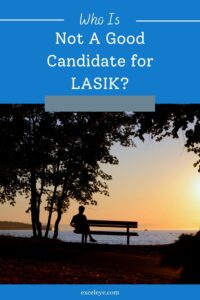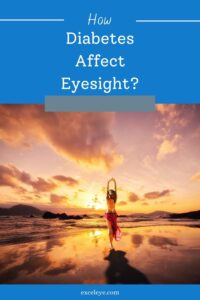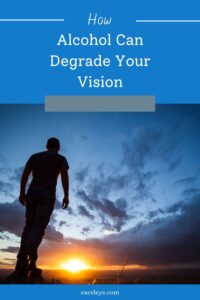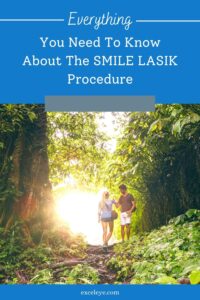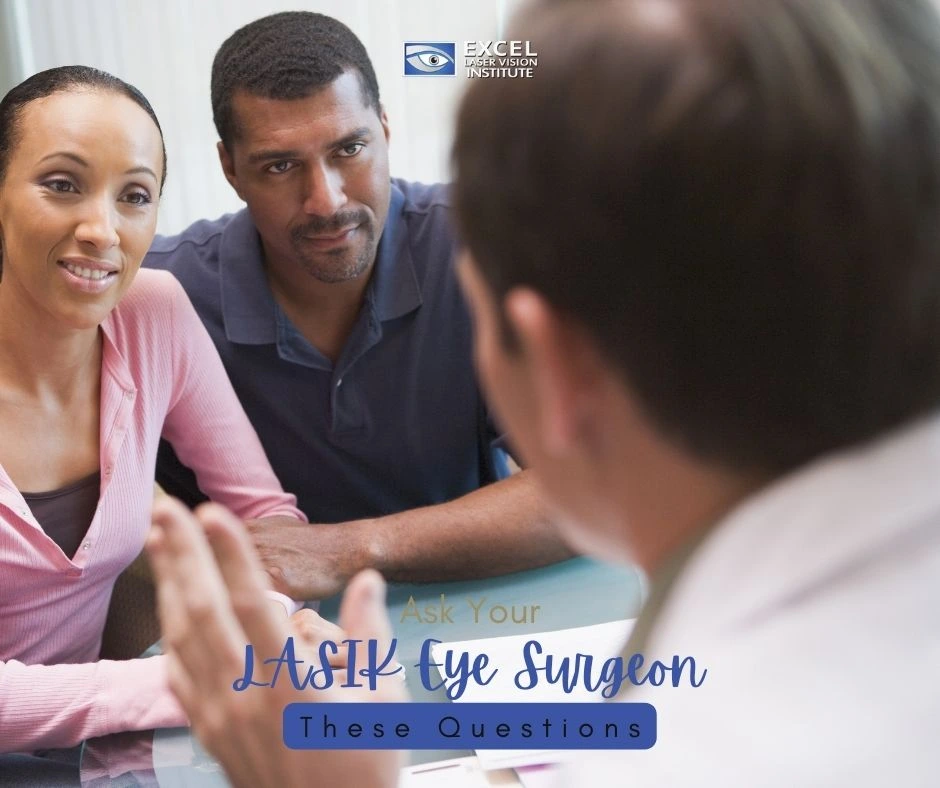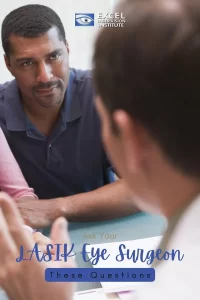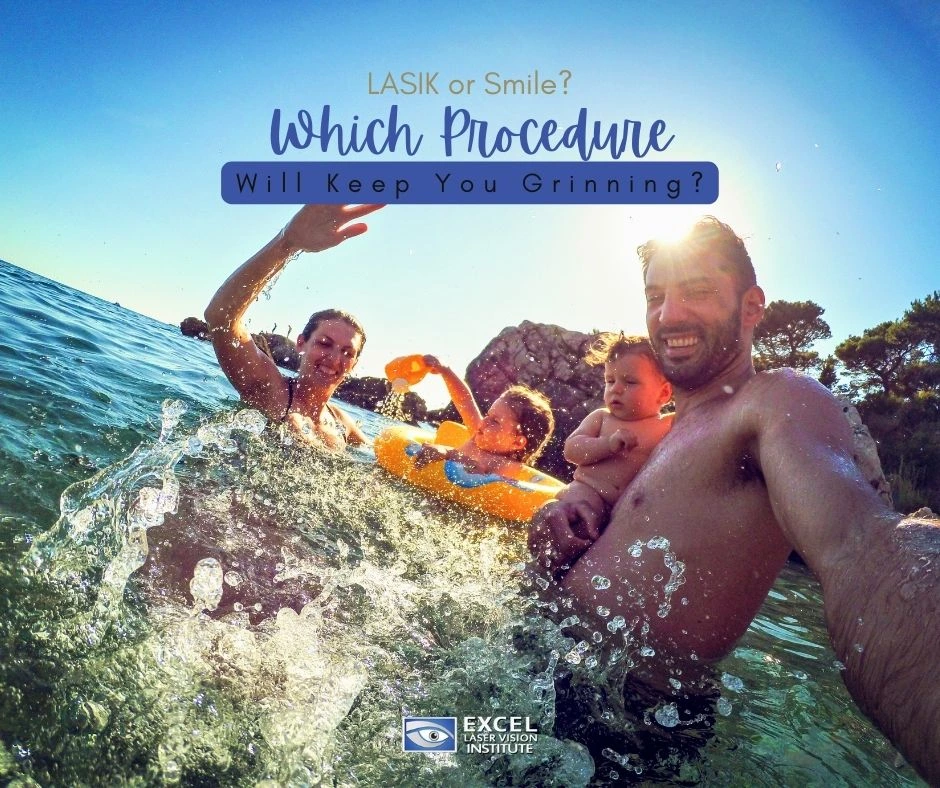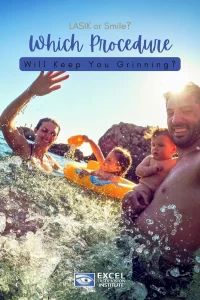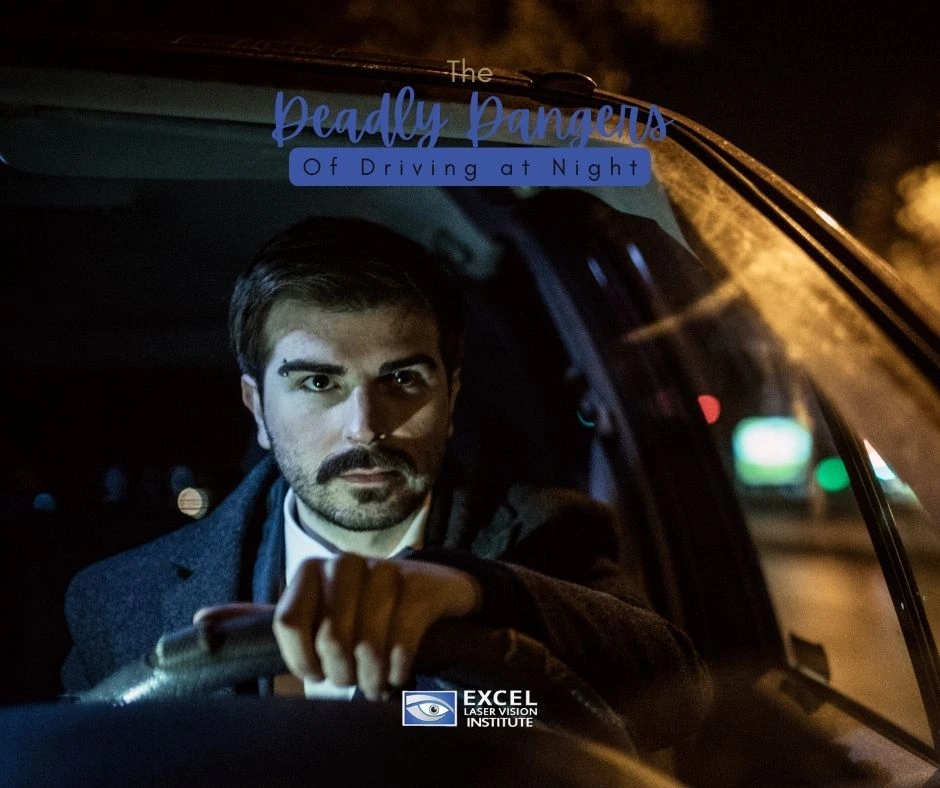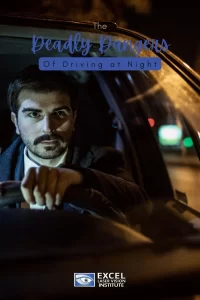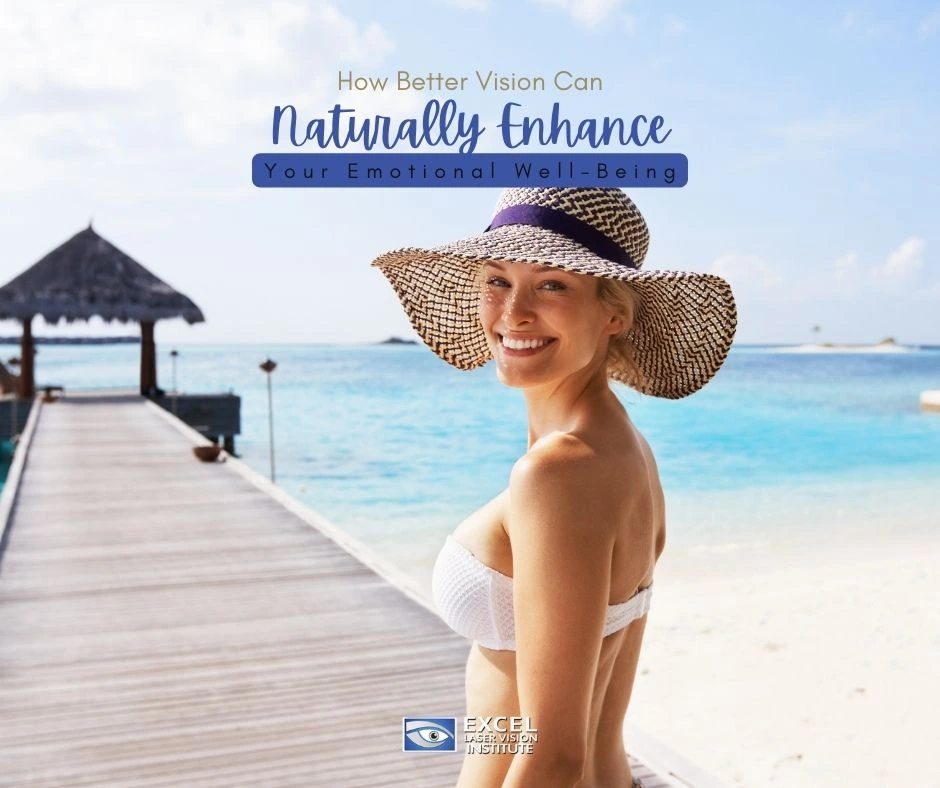
Why LASIK Is Beneficial for Military Service Members
If you are an active service member or planning to join the military soon, there are plenty of reasons why Los Angeles LASIK can be an excellent choice for you. The process of joining the U.S. armed forces can be both an exciting and nerve-wracking process, and we want to be there to help you make the transition from ordinary civilian to military life smoother for you.
Why should I get Los Angeles laser eye surgery before I head off to boot camp?
As with anyone who has a profession that requires a high skill level, you must have the ability to see as clearly as possible. Glasses and even contact lenses can be highly inconvenient for anyone in the service. You need to be able to think and act fast in this line of duty. During your basic training, you will need to prove that you are sharp enough to graduate from the academy, and having poor vision can limit what you are capable of doing. Having to keep replacing glasses or contact lenses or updating prescriptions is too time-consuming when you are in the military. That is exactly why seeking a highly-skilled Los Angeles LASIK surgeon is the best choice you can make if you experience vision issues. Stew Smith, a former Navy SEAL, has advised men and women who are specifically seeking to join the Navy to get any kind of eye surgery before enlisting.
Remember that each military branch has its own rules regarding vision requirements, so be sure to speak to your recruiter about the specifics, including whether or not you will require a waiver.
Can I be disqualified from a specific branch if I undergo LASIK?
At one point, one would be disqualified from the U.S. Army if they had LASIK. As of writing, you may qualify for a waiver. It will highly depend on various factors of your eye and overall physical health. Speak to a recruiter or any other active military personnel you may contact regarding the matter and a qualified laser eye surgeon to help you make the most informed decision for yourself.
LASIK for Aspiring Air Force Pilots
As of May 2007, those who have undergone LASIK and wish to join the U.S. Air Force can still qualify for service. All enlisted members, regardless of whether or not they have had Los Angeles laser eye surgery, must fulfill the vision requirements listed in AFI 48-123.
How long will I need to wait after LASIK to enlist?
Although the recovery time for LASIK is relatively quick, it is recommended to undergo LASIK between 6 months to 1 year before enlistment.
Allow us to serve you.
From all of us at Excel Eye, we congratulate you on taking the first steps into a fulfilling and truly groundbreaking career in the military and personally thank you for your service to our country. Our professional team can help you find the best vision correction option for you as well as help you finance the cost of laser eye surgery. If you think Los Angeles LASIK is the right laser eye surgery for you, please contact our office today to schedule your free consultation appointment!
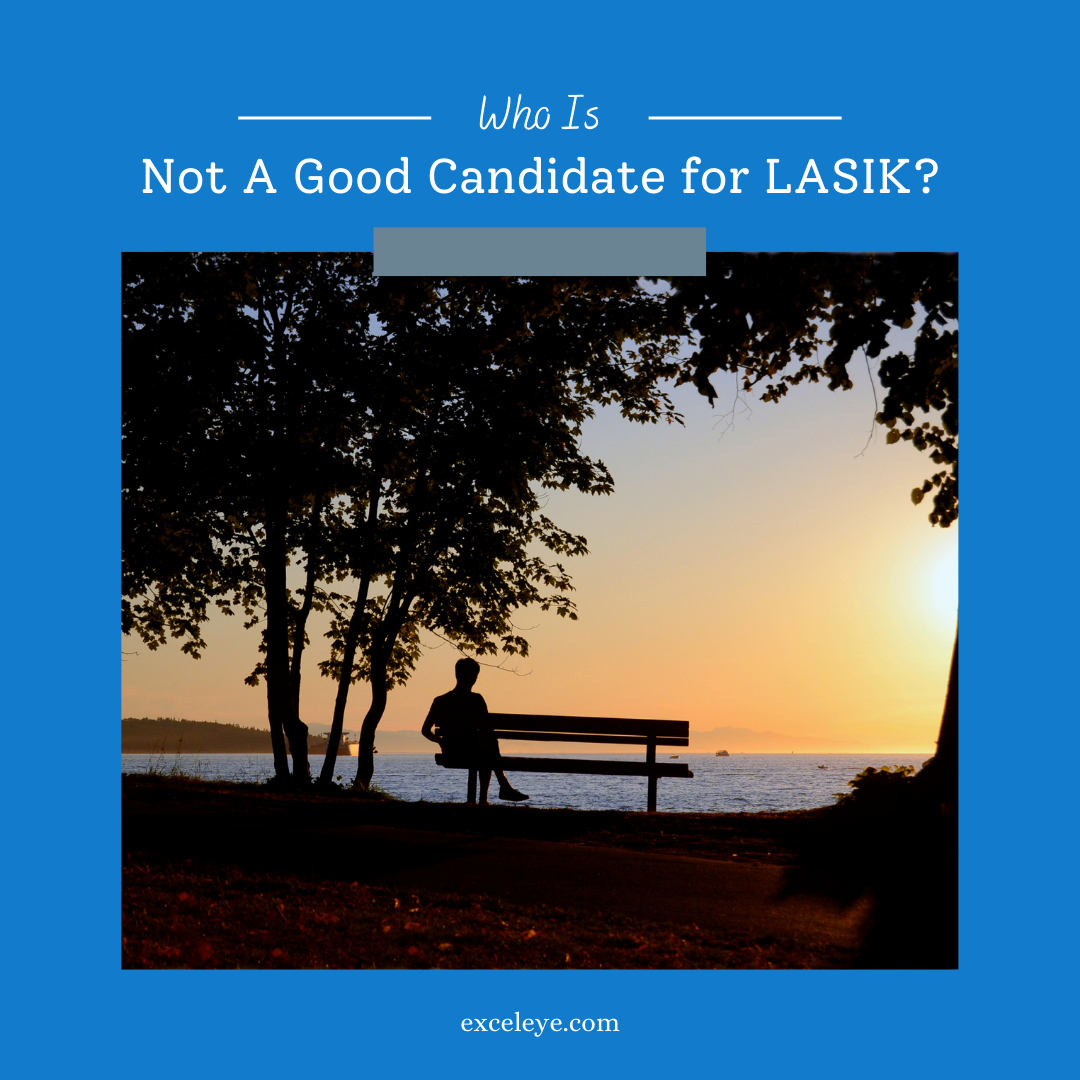
Who Is Not A Good Candidate for LASIK?
LASIK in Los Angeles is a popular option for correcting vision problems, but not everyone is a candidate. Certain medical conditions and medications may make surgery impossible for you. Keep the following in mind if you’ve recently been looking for LASIK surgeons in Los Angeles:
Patients with unstable eyes
Any person with unstable eyes should avoid LASIK surgery. The laser doctors use in this procedure is designed to alter the shape of the cornea, but it is not strong enough on its own; thus, LASIK can lead to severe complications such as visible veins or retinal detachment!
People who suffer from severe myopia
Moderate myopia can be corrected with LASIK, but if you are not in the 10.00 to 13.50 D range, you may not be eligible for the surgery. A different treatment strategy will be recommended for patients with severe myopia.
Expectant mothers
Any kind of laser eye surgery is incredibly unsafe for a developing fetus, and it can also be harmful to your body while you are breastfeeding. As a result, the recommended amount of time to delay LASIK surgery is half a year after the child’s birth.
Minors
You must be 18 years old to receive laser eye surgery in Los Angeles. This is since a person’s vision does not fully develop until they reach adulthood.
Individuals with an autoimmune disease or specific particular medications
If you have lupus or rheumatoid arthritis and are thinking about LASIK surgery to improve your quality of life, you’ll have to turn to alternative treatments. Lasers can cause a flare in these conditions, making things even more difficult. One of the risks of this procedure is permanent eye damage from inflammation-related side effects such as retinal detachments. Furthermore, there is evidence that certain types may aggravate symptoms by activating the immune system, causing others to have lifelong chronic health issues.
Furthermore, people with heart disease, diabetes, or cataracts should consult an ophthalmologist before undergoing this procedure because it may increase the risks associated with these conditions during the postoperative period. If you are a woman using birth control, your prescription may be less accurate due to laser eye surgery, increasing your chances of an unplanned pregnancy.
Want to find out if LASIK is right for you?
While we would love to provide Los Angeles LASIK to anyone who walks into your office, it simply is not realistic. As a result, we sometimes decline patients and recommend alternatives to them, such as PRK or refractive lensectomy. Meanwhile, if you believe you are a qualified candidate, please get in touch with Dr. Ferzaad Moosa’s team here at Excel Eye today to schedule a consultation appointment. Our professional team will be able to devise the ideal strategy for you, ensuring that you receive only the highest quality results that will ensure your satisfaction. It is critical that you are not only completely satisfied but that your results last. Remember, you’re not paying that much money for anything, not paying that much money for nothing, are you?
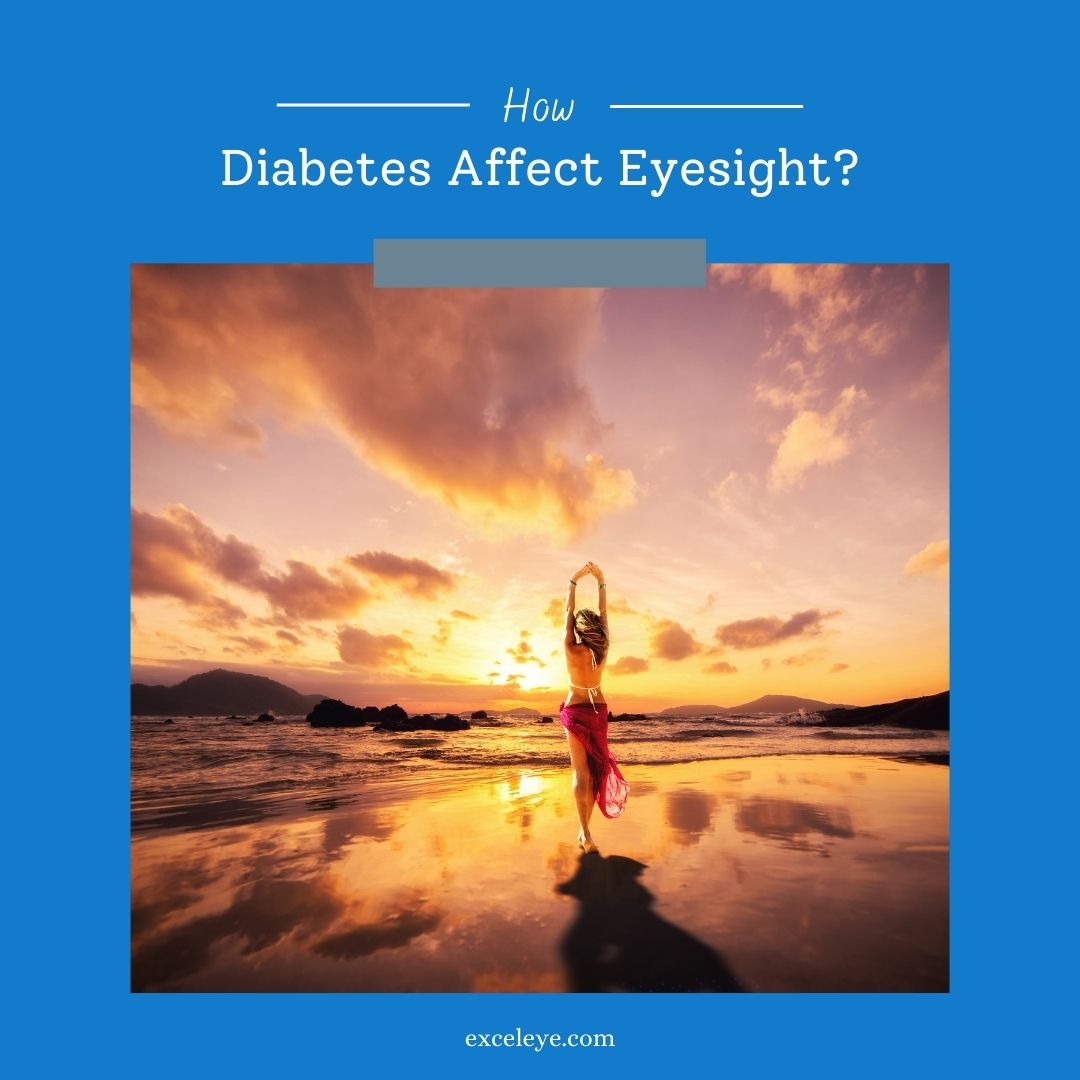
How Diabetes Affect Eyesight?
If you have diabetes, you understand how difficult it can be to keep track of all the variables. Nearly every aspect of your life contributes to keeping your blood sugar under control. Failure to do so can endanger organs such as your heart, kidneys, and nerves. High blood sugar levels can also impair your vision. That’s why when it comes to managing your diabetes, you should be aware of how diabetes affects your vision and your risk of diabetic eye diseases such as diabetic retinopathy and glaucoma. You should also ensure that you have annual comprehensive eye exams with your ophthalmologist to stay on top of your overall eye health.
A general overview of the correlation between diabetes and eyesight from our Los Angeles LASIK experts.
As you already know, diabetes impairs your body’s ability to use or produce insulin effectively in order to control blood sugar (glucose) levels. High blood sugar levels can harm several different parts of your body, and this includes the heart, kidneys, and blood vessels.
Along with these vital organs, high blood sugar levels can harm your eyes in a variety of ways. This can result in damage to the tiny blood vessels in your eyes as well as fluid accumulation on the retina. If left undiagnosed or untreated, you may suffer irreversible vision damage or even blindness.
Fortunately for diabetics, 9 out of 10 percent of vision loss caused by diabetes can be avoided if detected early. The issue is that 2 out of 3 diabetics do not have regular eye exams. If you want to avoid diabetes-related blindness, early detection is critical. However, you must ensure that you receive the proper type of exam or you risk developing diabetic eye disease.
Do I qualify for Los Angeles LASIK if I have type 1 or type 2 diabetes?
There is no straightforward answer to this question. You will need to come in for a consultation appointment to not only evaluate the quality of your current eyesight, but also your blood pressure, and answer questions about medications you are taking as well as any other significant health conditions you are experiencing. Unfortunately, if your diabetes has truly affected your eyesight, you may not qualify for LASIK. It is critical that you are 100% honest with the Los Angeles LASIK surgeon, otherwise, you will put yourself at great medical risk. Luckily for you, consultation appointments at Excel Eye are completely free of charge.
Key Considerations for Diabetic Patients Considering LASIK:
1. Stability of Vision:
Diabetic patients need to have a stable prescription for at least a year prior to LASIK surgery. Fluctuations in blood glucose levels can lead to changes in vision, so stability is crucial for accurate corneal reshaping.
2. Control of Diabetes:
Good control of diabetes is vital. Patients considering LASIK should have well-documented control of their blood sugar levels, as confirmed by their primary care physician or endocrinologist. This stability reduces the risk of postoperative complications and improves healing.
3. Thorough Ocular Examination:
At Excel Laser Vision Institute, Doctor Ferzaad Moosa conducts comprehensive ocular health assessments to identify any diabetes-related complications, such as diabetic retinopathy or macular edema, which could impact the safety or outcome of LASIK surgery.
4. Risk of Complications:
Diabetic patients are at a higher risk of infections and slower healing after any surgical procedure, including LASIK. Detailed discussions with Doctor Moosa regarding the risks and benefits will help ensure that every patient makes an educated decision.
5. Post-Surgery Considerations:
Following LASIK, diabetic patients require close monitoring to manage any complications promptly. Doctor Moosa and the team at Excel Laser Vision Institute provide tailored post-operative care plans to address the specific needs of diabetic patients, ensuring optimal recovery and results.
The Role of Advanced Technology at Excel Laser Vision Institute
Utilizing state-of-the-art technology, such as the VisuMax® laser and the WaveLight EX500 Excimer Laser, Doctor Moosa ensures precise and customized vision correction tailored to the unique needs of diabetic patients. These advanced technologies help minimize the risk and maximize the effectiveness of LASIK for patients with complex health backgrounds.
Want to find out if you’re a candidate for Los Angeles LASIK? Schedule a free consultation appointment today!
For diabetic patients in Los Angeles considering LASIK surgery, consulting with a knowledgeable and experienced LASIK surgeon like Doctor Ferzaad Moosa is crucial. At Excel Laser Vision Institute, we prioritize patient safety and personalized care, ensuring that all aspects of your health are considered before proceeding with surgery. If you’re managing diabetes and contemplating LASIK, let us guide you through your options for achieving clearer vision safely and effectively.
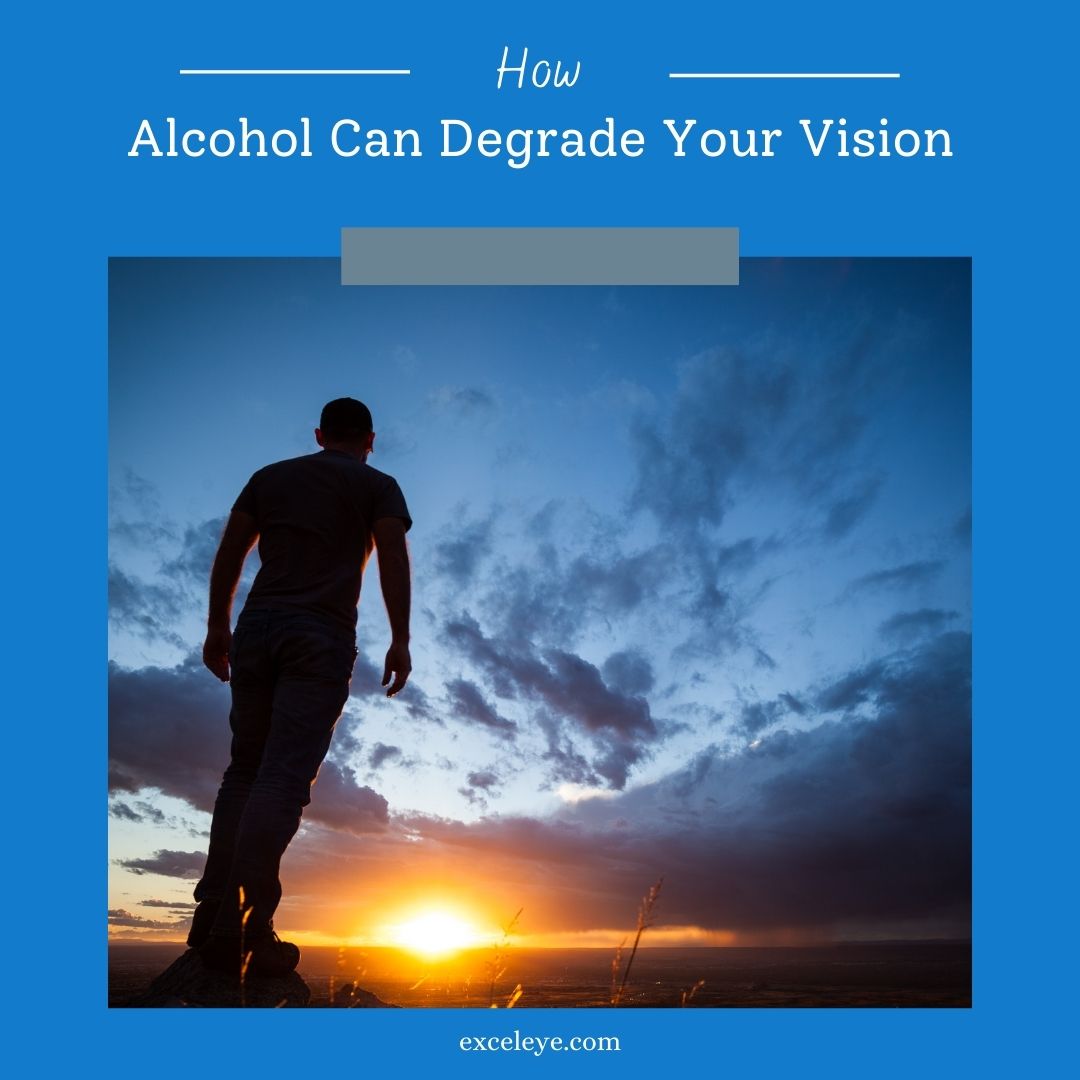
How Alcohol Can Degrade Your Vision
Excessive drinking can negatively impact your health and overall happiness in life, but did you know it can also affect your vision? Heavy drinking has been shown in studies to deteriorate image and, in some cases, result in vision loss. If you’re looking for another reason to stop or reduce your alcohol consumption, this could be it – so let the Orange County LASIK experts fill you in!
Why should I care about how alcohol can affect my vision?
Alcohol has several harmful effects on your vision. As you are already aware, alcohol slows the communication between the brain and the eyes. As everyone knows, drinking and driving is illegal because you must rely on both to operate a vehicle. These occur when both eyes see something simultaneously, and then only one eye sees that same thing again moments later. This could be because while we’re looking through our non-seeing (or misaligned) drift zone where everything gets a little mixed up, an image from another angle appears, giving us two perspectives on reality! While these symptoms usually go away once you stop drinking, being a heavy drinker can harm your eyesight in the long run.
Dry eyes can also be caused by excessive alcohol consumption. If you have dry eyes, you may be ineligible for Orange County LASIK eye surgery. When the surface of your cornea is irritated, normal tear formation becomes difficult. Excessive alcohol consumption can also result in bloodshot or red eyes. Drinking can cause you to need the restroom more frequently than usual, dehydrating your body and especially your eyes. Many people experience eye pain as a result of a lack of fluids!
Severe alcoholism, in the worst-case scenario, can result in permanent blindness. While it is not common, it is also not an impossibility. The cornea may become thinner over time, and the eye muscles may also lose strength. People under the influence have also been involved in fatal accidents that have resulted in permanent bodily damage. It is even possible to be involved in an incident that causes you to lose your vision simply because you were not in a state of mind to make rational decisions. Sadly, not even laser eye surgery in Orange County cannot cure blindness.
An important point to remember.
If you do not have an alcohol addiction but do drink occasionally, remember to avoid drinking 24 hours before your surgery because it will cause you to become dehydrated. Dehydration, as you are aware, can cause dry eyes. Continue to abstain from alcohol for the next 48 hours as your eyes heal from LASIK.
Are you ready to make a change in your life right now?
If you are seriously considering LASIK in Orange County, please contact Excel Eye today to schedule a consultation with us! We are equipped to answer any question you may have regarding the surgical process or about financing for the cost of your laser eye surgery. If you qualify, Harvard-trained Orange County LASIK surgeon Dr. Doctor Ferzaad Moosa and his team can help you start seeing the world as you’ve never seen it before. Create the life you want with the help of LASIK.
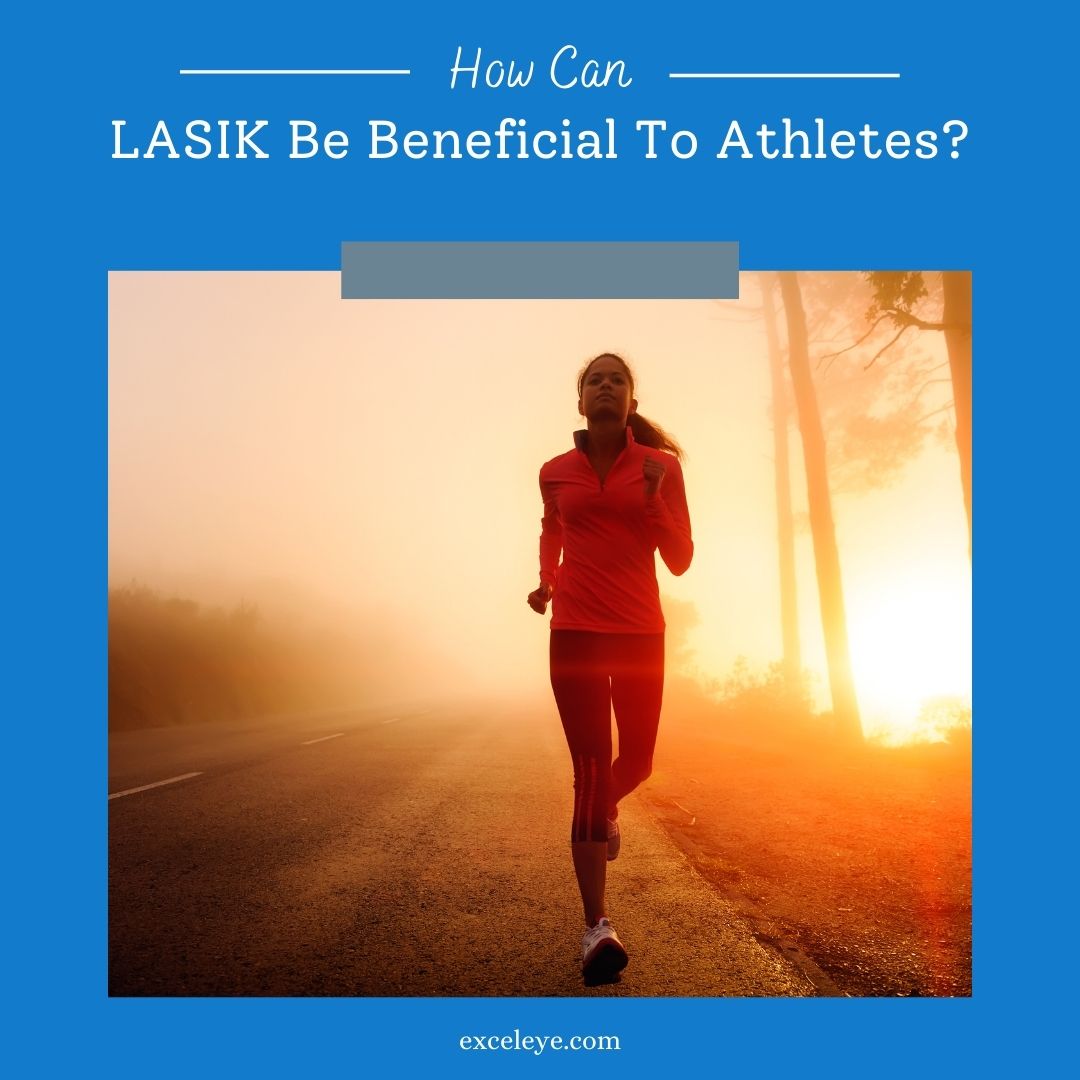
How Can LASIK Be Beneficial to Athletes?
Whether you are a gym rat purely for recreational purposes or a professional athlete, it can be nearly impossible to perform at the optimum level if you suffer from poor vision. Even if you have been wearing glasses or contacts for your entire life, you may feel that it is no longer working out for you and that you need to find a substitute. So how can LASIK in Orange County serve as that alternative you’ve been looking for?
Orange County laser eye surgery is more useful than glasses.
Wearing glasses while jogging or playing a beloved sport like baseball is a massive pain. Plus – you can’t wear glasses if you are a competitive swimmer. Depending on the circumstances, these glasses can also cause fogging and clouding vision. Consider the sport of triathlon. Transition time is valuable, and fussing over changing glasses is not worth it. What if your drinks break or you lose a contact lens during the competition? You’ll simply be out of luck!
Corrective Eye surgery is a more reliable solution.
Your glasses may become displaced or broken during a game or practice if you participate in sports. There is always a risk of infection when wearing contact lenses, especially when swimming, and the risk of trauma and infection is eliminated with
Winter sports
When it comes to winter sports, LASIK has an advantage over glasses. In cold weather, glasses can fog up, impairing performance and safety in winter sports. Water sports are also made more accessible and safer after LASIK, and infection risk is reduced by avoiding contact lenses in the water.
Overall better performance in any sport you enjoy
Glasses, significantly higher prescriptions, do not always provide a realistic vision, and they can cause distortion or magnification changes. The difficulties with bifocals or progressive lenses can be even more remarkable; they require unique gaze positioning, which can be difficult when participating in sports. LASIK improves depth perception and reaction time, critical skills for athletes.
You’ll find yourself recovering and returning to your sport in no time!
Although most people recover quickly after LASIK, each person is unique. Allow extra recovery time after surgery if your recovery takes longer than expected. You can always return to your game sooner if you want to. The recovery time for LASIK is not as long as it is for PRK. As a result, one eye is completed first and then allowed to heal before the second is completed. The spacing of the surgeries on each eye allows for the best possible recovery.
So many famous athletes and celebrities have had tremendous success with LASIK. These big names include but are not limited to LeBron James, Tiger Woods, and Dwayne Wade….and you could be next! Please get in touch with us at (310) 905-8622 to schedule a free Orange County LASIK consultation. Every patient who visits our offices receives the highest level of professional service. Our premiere Orange County laser eye surgeon, Dr. Ferzaad Moosa, is a Harvard-trained physician who is more than qualified to answer any of your questions regarding the process. Whether you wish to find out if you are a good candidate for the surgery or ask about the cost of laser eye surgery, we are confident that choosing us for your LASIK surgery will be one of the best decisions you will make on behalf of your well-being.
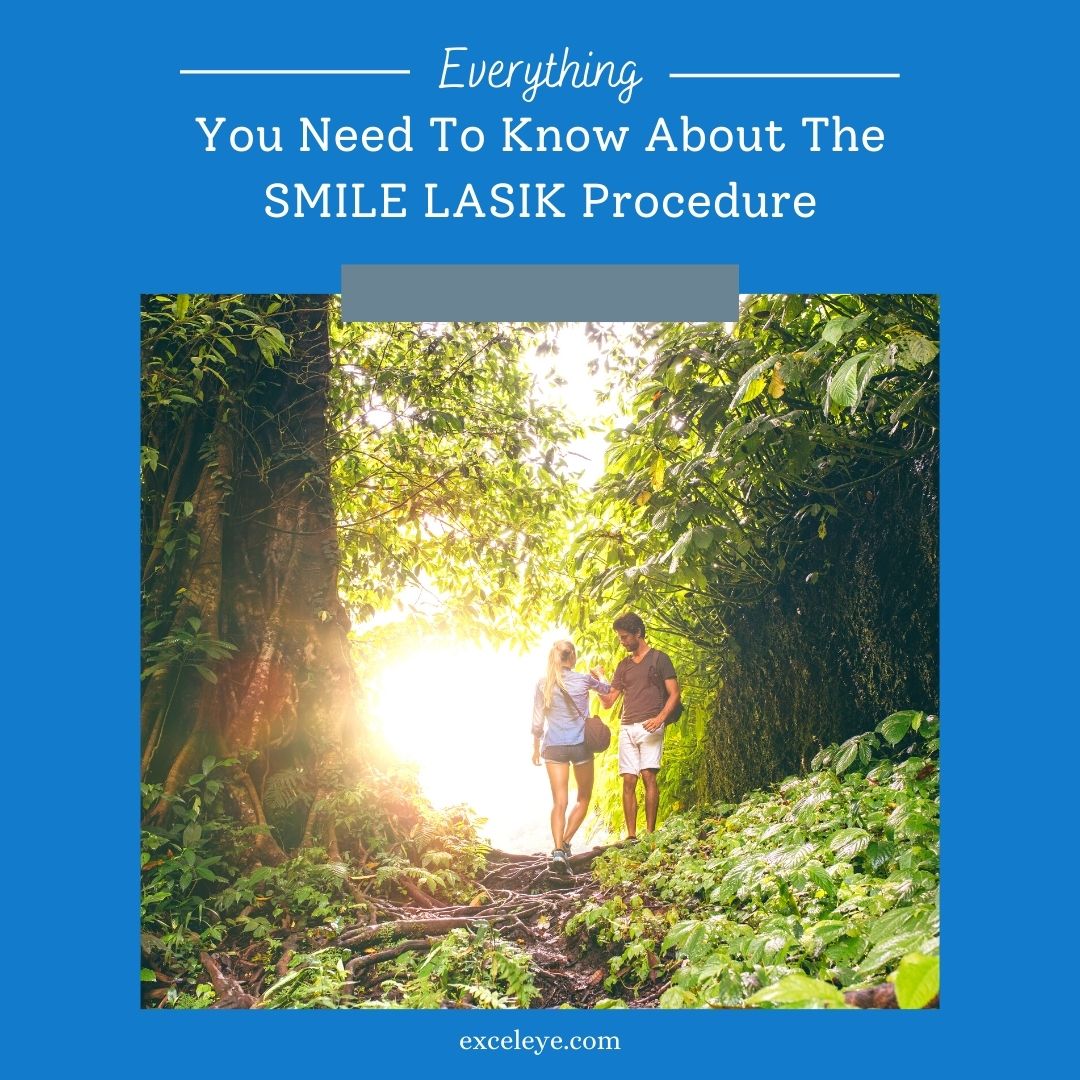
Everything You Need To Know About The SMILE LASIK Procedure
For more than 30 years, LASIK has been used in refractive laser eye surgery in Los Angeles. Additional techniques are also available for better options like the small incision lenticule extraction, also known as SMILE. SMILE is a refractive surgery procedure that offers similar results to advanced LASIK. However, compared to LASIK, this procedure has limited issues. This procedure can be performed using the VisuMax equipment. Learn more about this procedure as shared by experts from the LASIK eye center in Los Angeles.
Procedure
The SMILE procedure is known best for people with dry and irritated eyes. Using this procedure for vision correctness can decrease the disruption on the surface of the eyes, which could bring discomfort to the patient. SMILE gives a more gentle healing process on the ocular surface compared with other procedures. The procedure is also recommended for athletes or sports-oriented people. The SMILE process is not a flap-based procedure which is also an advantage for those who do not want that kind of treatment. This process can be performed using one laser system like the WaveLight EX500 Excimer Laser. The SMILE procedure is a promising treatment for those who want to undergo a vision correction process.
Advantages
In addition to the benefits of SMILE procedure mentioned previously, it is also known that this process utilizes a smaller incision. Approximately 4mm or a smaller incision is made for the procedure. The small incision offers less disruption to the nerves located at the cornea. Disruption of these nerves could lead to denervation, which could cause the dryness of the eye. The effect of this step (i.e., the smaller incision) is more prominent during the early postoperative period, where there is significantly less dryness in the eye observed compared to the LASIK procedure. In addition, there is less possibility of flap complications. Overall, SMILE offers a better way towards the biomechanical stability of the cornea.
Risks
Before choosing an option for vision correction, it is better to determine the risks and benefits offered by the procedure. The risk associated with SMILE procedures includes inflammation, clouded vision, dry eyes, and incomplete tissue removal.
Incomplete Tissue Removal
The SMILE surgery implements the separation and extraction of tissue from the mid-cornea layer. This step is unique to this technique which could add complications to the incomplete removal of tissue. If there is corneal debris left in the performed area, this could lead to abrasion, incisional tears, and adhesions. However, this debris can be flushed out using non-invasive treatments. Debris symptoms are temporary but could affect the recovery period and could lead to complications.
Inflammation
Inflammation is another risk which is a natural consequence for those undergoing an invasive procedure. This risk can affect the healing period, and SMILE has a greater potential for post-op inflammation than LASIK. Patients undergoing SMILE procedure should communicate with experts in LASIK Los Angeles if they have inflammation after the operation.
Hazy Vision
There is also a greater chance of having a hazy vision for those undergoing the SMILE procedure. People who undergo this operation mostly observe blurry vision and light sensitivity. These symptoms are usually observed during the first few months after the surgery.
The last symptom on the list is dry eyes. Dry eyes are common for those undergoing laser surgery. However, compared to other procedures, SMILE patients tend to have less dry eyes than those undergoing LASIK. This is because the SMILE approach creates fewer disruptions in the corneal nerves, which is related to post-op dry eye problems.
Conclusion
The SMILE procedure is a promising option for those who want to undergo LASIK in Los Angeles. This laser eye surgery has its own benefits and risks, which are common for any operation procedure. There are factors to consider when choosing the procedure you want for vision correctness, such as benefits, risks, and LASIK eye surgery cost. It is always important to weigh these factors before undergoing the operation. To further understand and give you enlightenment, it is recommended to always seek professional advice. Experts at the Lasik eye center in Los Angeles can help you choose the appropriate procedure for you.
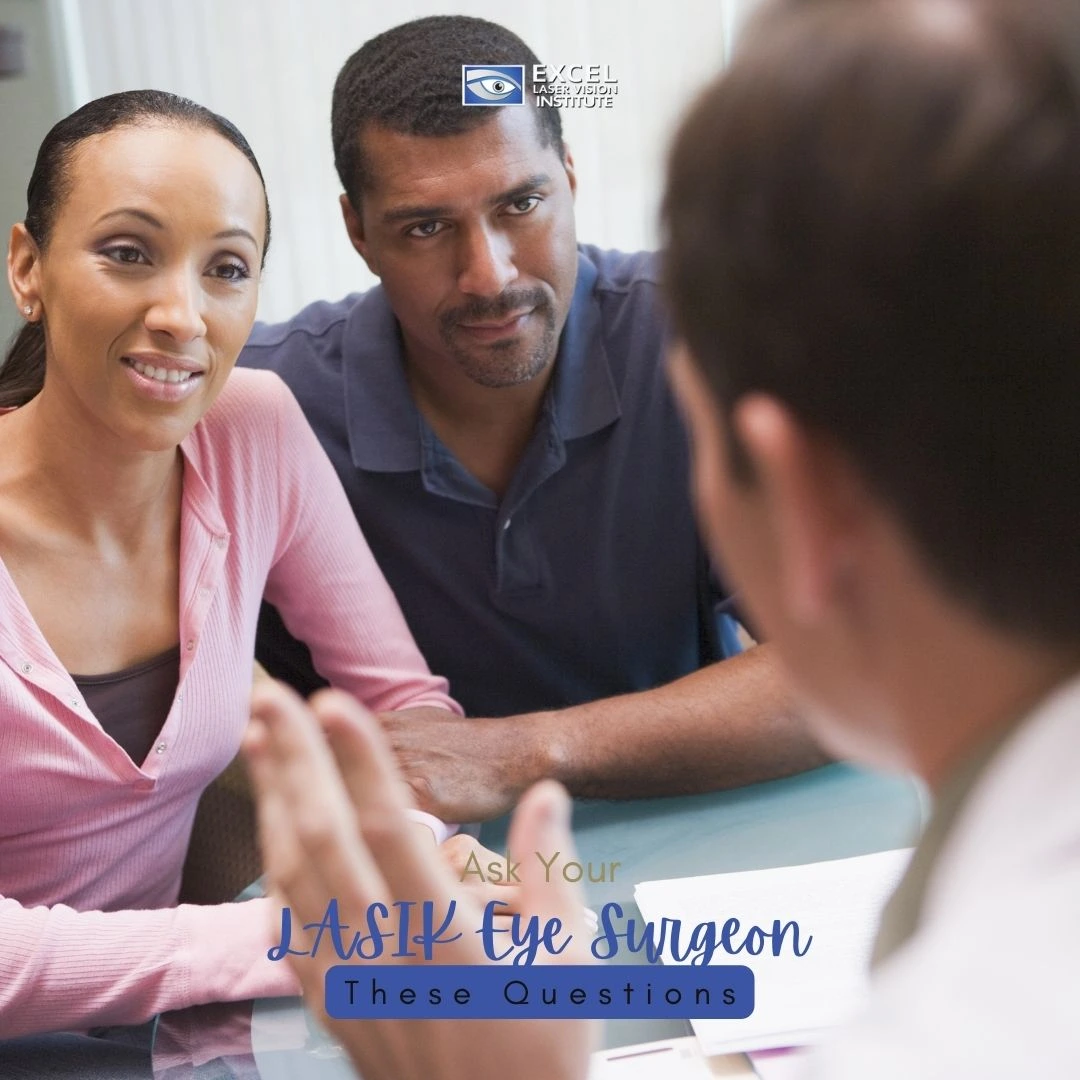
Ask Your LASIK Eye Surgeon These Questions
LASIK surgery is one of the most effective ways to repair refractive defects such as nearsightedness, farsightedness, and astigmatism. Experienced LASIK doctors perform the surgery. Fortunately for you, Orange County LASIK specialists are well-trained and experienced in employing a specialized laser to restructure the lens in the afflicted eye. The procedure is completely safe and effective. The fact that a laser is used can, of course, make some patients anxious. This is why it’s a good idea to talk to a number of before proceeding with the operation so that you won’t walk in on the big day with any surprises. Here are four key questions to ask any Orange County LASIK surgeon during your consultation:
How many LASIK many years of experience do you have?
When it comes to elective surgery, knowing that your surgeon has performed them previously might put your mind at ease. LASIK surgeons, therefore, can easily draw on their experience to assist you in achieving the best possible outcome. Don’t be afraid to ask your surgeon for an estimation of how many LASIK operations he or she has performed since beginning their career.
Are there any medications I should not take prior to undergoing LASIK?
Certain medications can reduce the effectiveness of the sedative used during the surgery. Others may potentially increase the pressure in your eye or make the surgery less effective. Make sure you tell your LASIK surgeon about any medications you’re taking, both over-the-counter and prescription. Your doctor can help you figure out which medications you should stop taking at least one week prior to your surgery.
Where will the operation be conducted?
LASIK surgeons will frequently perform the treatment wherever their equipment is located, and it may not be in the same location as your consultation. You must inquire specifically about the procedure’s location, as it may be performed somewhere other than your surgeon’s clinic. It’s a good idea to visit the eye center where your LASIK surgery will be performed at least a few days before the procedure.
What should I expect from the outcome of the procedure?
You should have realistic expectations going into your surgery. A good LASIK surgeon will be forthright with you regarding the procedure’s outcomes. Although Orange County laser eye surgery is used to address a broad spectrum of refractive problems, the severity of the error might affect the procedure’s results. Your surgeon may need to repeat the treatment several years later if you have a substantial refractive error.
Finding the Best Lasik Surgeon in Orange County
Dr. Ferzaad Moosa, our veteran surgeon at Excel Laser Vision Institute, is a Harvard, USC, and UCLA-trained refractive specialist and board-certified ophthalmologist with experience and skill doing LASIK operations. Dr. Moosa can undoubtedly answer your questions regarding laser eye surgery cost and beyond in order to give you the solutions you require if you are looking for an Orange County LASIK surgeon to entrust your eye care needs. Please make an appointment with our highly qualified surgeon for a free consultation today!
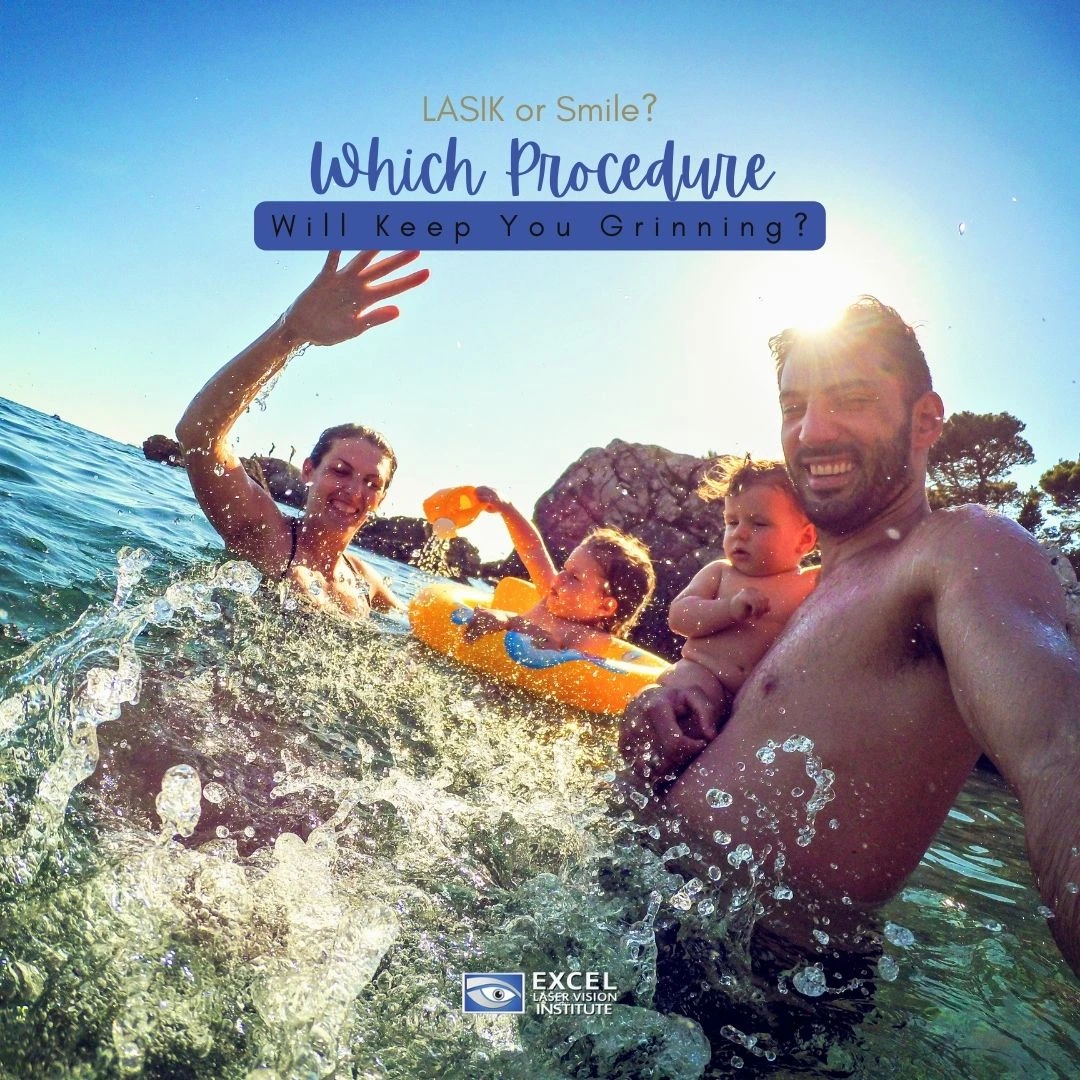
LASIK or Smile? Which Procedure Will Keep You Grinning?
If you, like millions of others, suffer from nearsightedness, you may be contemplating whether you should undergo SMILE or Los Angeles LASIK eye surgery. While each of these procedures deals with refractive problems, the methods used to treat them differ slightly. You can contact a highly reputable Los Angeles LASIK eye center such as Excel Eye to see if you are eligible for either of these procedures. LASIK is a popular vision repair surgery that has received high praise from doctors and patients. While SMILE is a newcomer to the industry, it quickly establishes itself as a formidable opponent. In September 2016, the FDA approved SMILE for use in the United States, and the surgery has produced such positive results that the SMILE Relex vs. LASIK controversy has erupted.
Here is what you should know:
What Exactly is SMILE Laser Surgery?
Small Incision Lenticule Extraction (SMILE) is an acronym for small incision lenticule extraction. A VisuMax femtosecond laser is used to conduct the surgery. The surgeon uses a femtosecond laser to generate a small, lens-shaped piece of tissue called a lenticular within the cornea during a SMILE operation. Following that, a small arc-shaped incision is produced on the cornea’s surface with the same laser, and the surgeon extracts and disposes of the lenticular through this incision.
When the little lenticule is removed, the shape of the cornea changes, correcting nearsightedness, according to a Los Angeles laser eye surgery specialist. The corneal incision heals without stitches in a few days, and more precise vision appears almost immediately. Nearsightedness can correct nearsightedness of up to -10.00 diopters (D) with SMILE laser eye surgery candidates must be at least 22 years old, have no more than -0.50 D of astigmatism, and have had their eyeglass prescription stable for at least 12 months to be eligible for SMILE eye laser surgery.
Who is a Good Candidate for LASIK?
A patient’s corneal thickness must be sufficient for your eye surgeon to consider you a good candidate for LASIK. The reason for this is that during your procedure, a flap is formed. As a result, a particular corneal thickness is required, and LASIK eye surgery is not accessible to individuals with thin or uneven corneas. Patients with thin or uneven corneas are usually better candidates for SMILE or PRK. SMILE may be preferable if a patient is prone to prolonged dry eye issues. LASIK increases a patient’s previously chronic dry eye problem by increasing the risk of postoperative dry eye symptoms.
Pros of SMILE
According to studies, SMILE produces about the same visual acuity as LASIK for the treatment of nearsightedness without requiring a LASIK-style corneal flap to be created by the surgeon. Except for one participant, all 328 who underwent the SMILE treatment had uncorrected visual acuity (UCVA) of 20/40 or better following surgery, and 88% had UCVA of 20/20 or higher. Furthermore, compared to LASIK, there is evidence that SMILE has a lower incidence of dry eye issues. There could be several reasons for this, including that SMILE is performed within the cornea without a huge corneal flap, affecting fewer corneal nerves.
The small SMILE incision may also help the cornea have better biomechanical stability after SMILE, as opposed to its ability to preserve its form after LASIK, especially the following damage. Finally, if you have a significant degree of nearsightedness, you may need enhancement surgery after LASIK to achieve the clarity of vision you desire without glasses. Because there is less dryness of the cornea during the SMILE treatment, there appears to be a lower likelihood of requiring another procedure after SMILE for correction.
Does SMILE Have Any Downsides Compared to LASIK?
SMILE has many advantages, but it does have one disadvantage: it cannot be used to correct farsightedness or astigmatism at this time. As a result, SMILE is for you if you have nearsightedness and your eye surgeon believes it is the best option for you. Plus, unlike LASIK, visual recovery takes a little longer. A patient can have immediate vision recovery after a Los Angeles LASIK treatment; however, SMILE’s visual recovery can take one to two days.
If you want to learn more about SMILE vs. LASIK or your nearsightedness, including the specifics of the procedure or the cost of LASIK eye surgery, please get in touch with our Encino or our Brea office today.
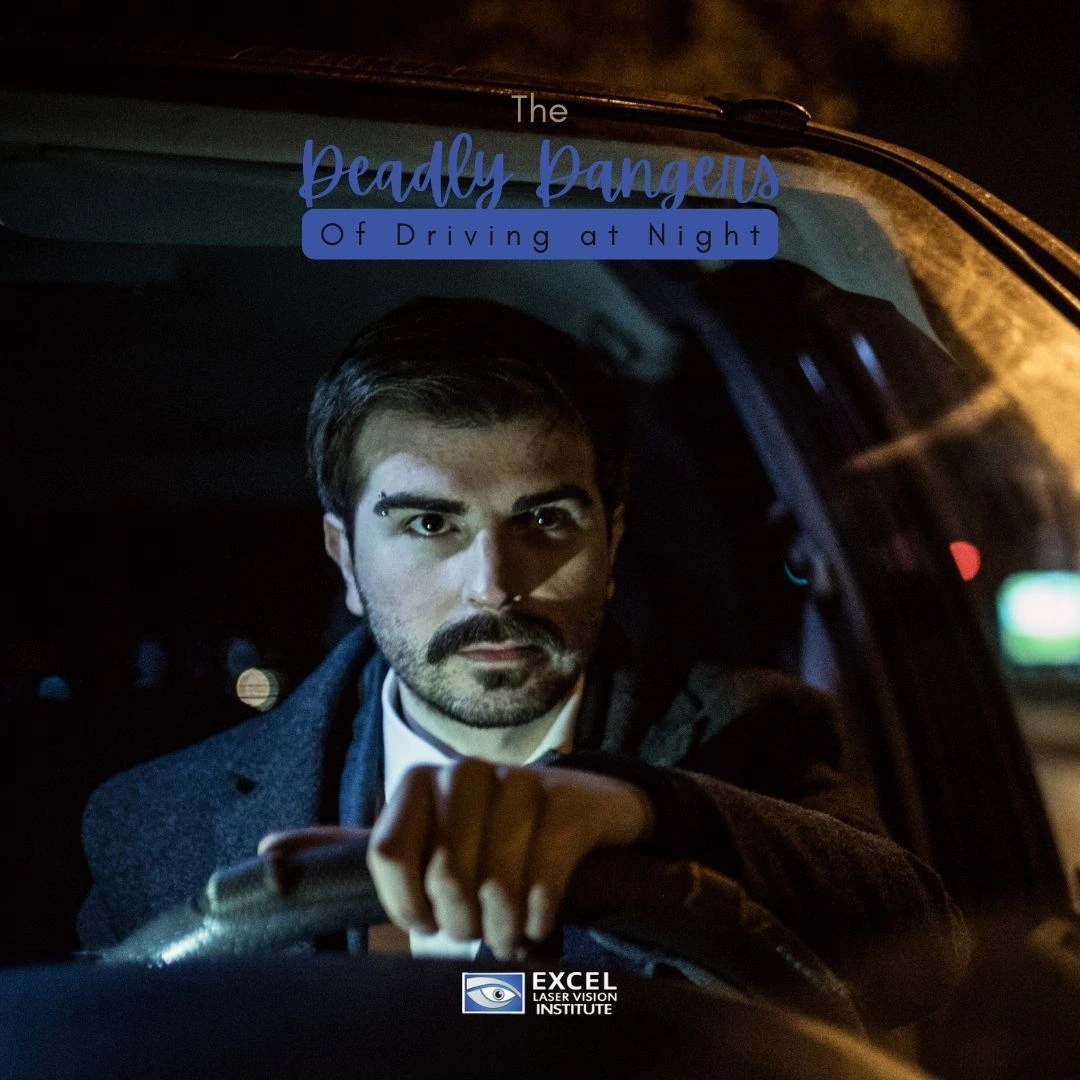
The Deadly Dangers of Driving at Night
Did you know that most car accidents in the United States happen in the dead of night? In fact, according to the National Safety Council, 50% of fatal car accidents happen at night even though humans only spend a quarter of their lives driving at that time.
Below are the main reasons why driving at night is so dangerous.
You See Less at Night
Unless you’re a cat with enhanced vision in the dark, it’s extremely difficult to see things at night, even with perfect vision. Your headlights can only illuminate things to a certain extent—you’re still bound to miss certain road features like curves, potholes, sidewalks, and other things that can potentially harm you and your car.
Even worse, it’s a lot harder to see animals and people. How many horror stories have you heard about deer or moose suddenly appearing out of nowhere while you were driving at night? Not only can driving at night be dangerous to you, but it can also be dangerous for others—it’s a lose-lose situation for everybody.
You Have a Slower Reaction Time
Because your eyes see less at night, your body has less time to react to certain things. This is especially grimmer because people tend to drive faster at night—with less traffic around, people feel more confident about speeding.
This combination of slower reaction time and higher speed can be fatal. According to a study done by the National Highway Traffic Safety Administration, car accidents caused by speeding occur twice as much at night than during the day.
You’re Prone to Light-Related Issues
If you think that more light when night driving is a good thing, then think again! Light-related issues like glares, halos, and blurred vision can negatively impact your vision at night. It’s the same kind of pain and discomfort you feel when someone turns the lights on you while you’re sleeping—your eyes have a hard time adjusting to sudden, bright lights, and that can make all the difference between life and death.
You’re Sleepier at Night
If you’re driving late at night, chances are you’re lacking sleep. Being sleepy makes you less aware of your surroundings, making you more prone to accidents or poor driving decisions, or worse, falling asleep behind the wheel!
How to Practice Safe Driving at Night
Now that you’re aware of the risks of night driving, it’s time to learn how to mitigate them. Below are several effective ways to improve your safety when driving at night.
Avoid Driving at Night
The best way to avoid accidents caused by driving at night is, of course, to avoid driving at night altogether. As much as possible, you should squeeze in all of your outdoor activities in the daytime so you can be home safe and sound before the sun sets.
If you’re someone who can’t avoid driving at night due to things like night shifts or emergencies, then just make sure to take extra precautions. Reduce your driving speed. Drive in well-lit areas. Have a friend to keep you company so you won’t be tempted to fall asleep. All of these will up your safety considerably.
Keep Everything Clean
You’ve already got low visibility due to lack of light—don’t make it even lower with dirty cars!
Keep everything nice and squeaky clean, including your windshield, side mirrors, side windows, and rearview mirror. This way, you can readily see things whenever you need to. Remember to clean the inside part of your windows, too; many people forget that it gets just as dirty as the outside!
Also, keep your eyeglasses just as clean. Or better yet, invest in laser eye surgery costs so you’ll never have to worry about eyeglasses or contact lenses ever again.
Be Well-Rested
If you plan on driving at night, make sure you have a few hours of sleep beforehand at the very least, and never drive if you’ve been awake for more than 16 hours. If you find yourself yawning or struggling to keep your eyes open, then pull over for a nap or find the nearest accommodation as soon as possible and continue driving in the morning.
Sleep is an absolute must if you want to keep your mind alert on your journey.
Schedule Eye Exams with Your Doctor
Keep your eyes and eyesight in tip-top shape by making regular visits to your eye doctor. They’ll be able to assess any issues with your eyes, like astigmatism or cataracts that can affect your driving at night. They can also prescribe you medications and/or corrective measures to fix it.
Don’t forget to ask your doctor about anti-glare lenses, polarized glasses, or LASIK in Los Angeles!
Conclusion
There is no excuse for poor driving behavior and etiquette when driving at night. Not only are you a danger to yourself, but you’re also a danger to other people! Keep you and your loved ones safe at all times by driving extra carefully, keeping your car clean and fully functional, and being healthy (i.e., having your vision checked regularly and never driving with alcohol or drugs in your system).
If you’re a frequent night driver and are interested in learning more about improving your vision for driving at night, then might we recommend visiting your nearest Los Angeles LASIK surgeon, Dr. Ferzaad Moosa? He is an experienced surgeon with more than two decades of service under his belt. Schedule a free consultation with him today at (310) 905-8622 to see if LASIK can help keep you safer not only at night but the whole day!

How Better Vision Can Naturally Enhance Your Emotional Well-Being
Many people consider LASIK in Orange County to be a viable, long-term solution to eyesight problems. While this is largely true, you might be stunned to discover that strengthening one’s vision can considerably enhance one’s mood and alleviate symptoms of hopelessness and depression. So what does the research say about this topic?
Depression and Eyesight
It’s natural for our vision to deteriorate as we get older. However, sometimes people face considerably faster vision loss than what is considered typical. According to research, this has a strong link to the risk of developing depression and other mood disorders. Consider the following statistics:
- Adults with poor eyesight are 30% more likely to be depressed than those who have good vision.
- More than 10% of people who have eye issues also have serious depression symptoms.
- When compared to persons without impaired vision, those with poor eyesight (11.3 percent) were more likely to be depressed (4.8 percent).
On an even lower note, the data also reveals that those with vision problems are more likely to be depressed than people who are completely blind. Eyesight is one of our most important senses, and even little abnormalities can cause substantial emotional disorders. These problems can significantly limit what you can do on a day-to-day, including:
Ways In Which Vision Affects Our Emotional Well-Being
Driving
Naturally, it’s difficult to complete normal activities and meet goals when you can’t drive securely at night or even during the day! This can make you truly feel helpless not being able to get yourself where you need to go. Not to mention Lyfts can take forever to get to your house!
Difficulty recognizing others
The inability to recognize friends and loved ones has a far greater impact than most may imagine. According to a recent study, being unable to recognize faces leads to decreased social engagement, reduced confidence, and higher rates of anxiety, despair, and loneliness.
Recreational activities
People with unstable eyesight are often not able to fully enjoy some of their favorite hobbies during their free time, such as playing sports, reading, gaming, or even spending time with their friends and family.
Less satisfactory work performance
Poor vision directly impacts your career. Employees with vision problems are more likely to take sick days, be looked over for promotions, and have lower productivity and job satisfaction, according to studies.
Physical health complications
Poor vision can lead to migraines, nausea, and other health problems. Wearing eyeglasses or contact lenses, contrary to popular belief, might exacerbate this effect, particularly when prescription difficulties emerge.
How Laser Eye Surgery Can Help You
While wearing prescription eyeglasses and contact lenses can help with worsening eyesight in the short term, it’s worth speaking with a Orange County LASIK surgeon to learn about more effective choices. LASIK surgery is a revolutionary method that can help people regain their vision. It has an incredibly high success rate, and further complications are uncommon proceeding the treatment. The long-term benefits of laser eye surgery can help ease depression symptoms and improve quality of life.
Don’t hesitate to contact the Excel Laser Vision Institute if you think LASIK in Orange County is right for you. Our eye physicians can help you make an informed selection and assist with the cost of LASIK eye surgery. To learn more, please contact us.



